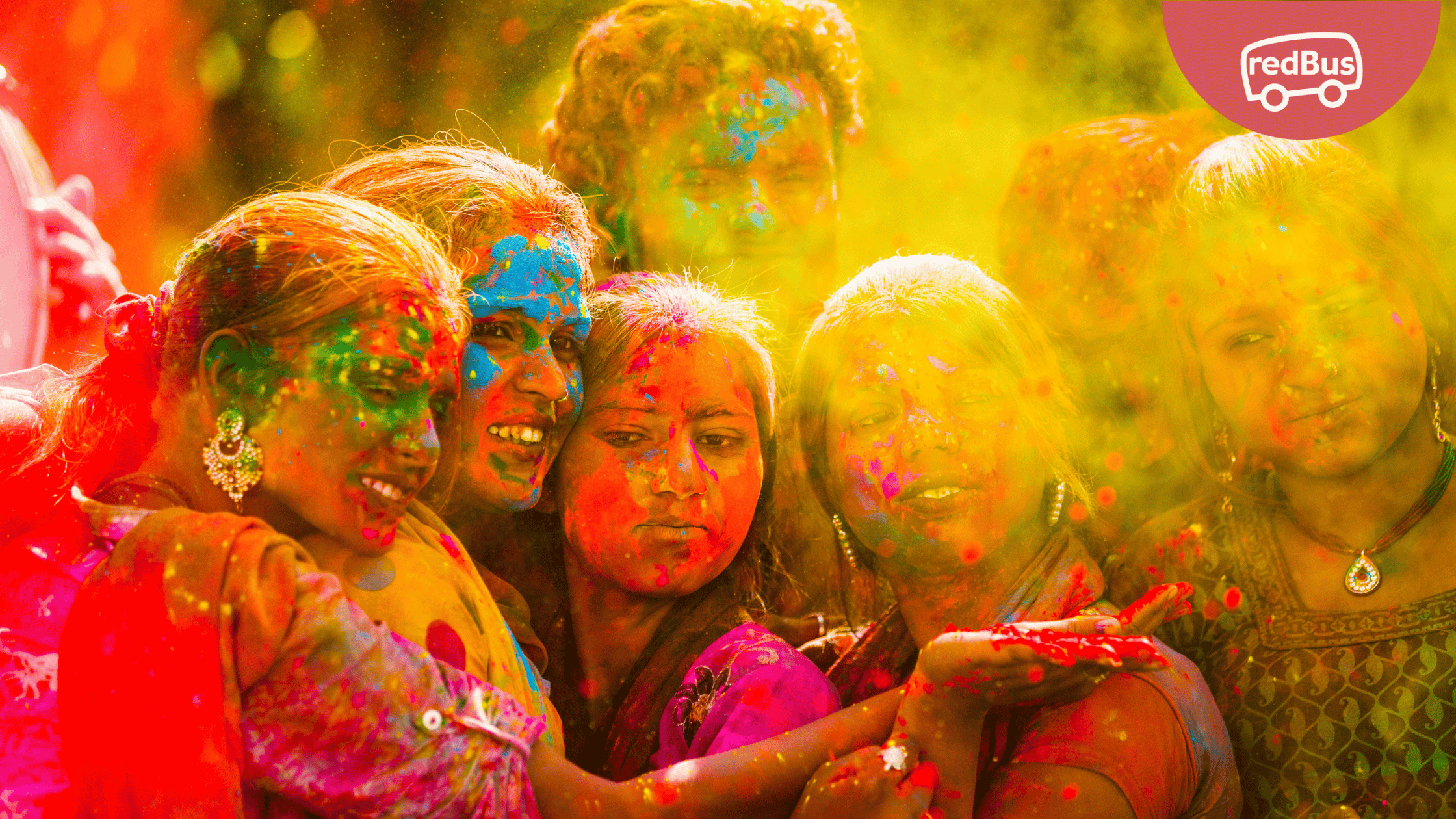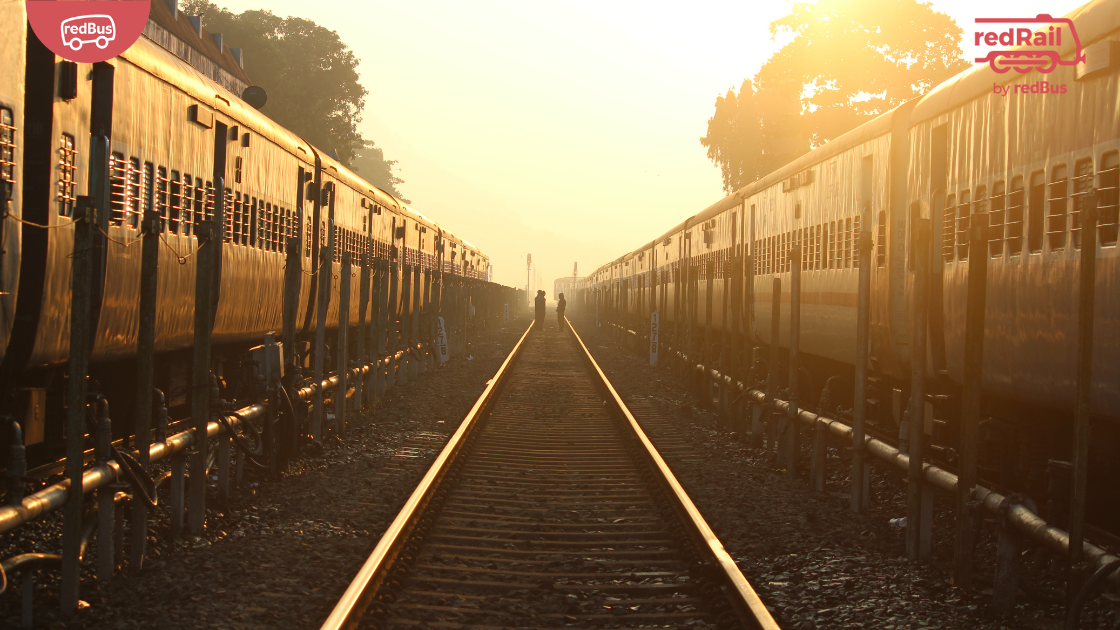redRail by redBus released the fifth episode of the Window Seat podcast featuring the cast and crew of the film – Dil Ki Patri.
In the Window Seat podcast by redRail, featuring Indian actress Ms. Sohaila Kapur and Amitabh Aurora, Director of the Dil Ki Patri short film, listeners are invited into thought-provoking discussions about creating a captivating romantic classic. The pair also share their experiences of travelling by train in a window seat, reflecting on the unique charm of train journeys. The window seat holds a special place in the hearts of millions of train passengers, offering a connection to the outside world and all the discoveries that come with it. From witnessing changing landscapes and hearing different languages to exploring the diversity of rural India, the window seat provides endless opportunities for exploration. Beyond the external views, it’s also a space for self-reflection and peace, giving travellers a moment to contemplate life as they watch the world pass by. This reflective aspect of the window seat can be incredibly valuable during certain moments in life. In the podcast, Ms Sohaila Kapur and Amitabh Aurora discuss these enriching experiences, along with their insights into the short film Dil Ki Patri, which beautifully captures the essence of window seat travel. If you haven’t watched the full episode of the Window Seat Podcast, watch it now!
What Are Your Fondest Window Seat Memories?
Sohaila Kapur shared her fondness for travelling in a window seat, expressing how she always loved gazing out the window during train journeys, feeling connected to the world as it passed by rather than isolated. She described the unique charm of waving goodbye to strangers and sharing fleeting moments with unknown people. For Amitabh Aurora, train journeys have been rich with emotions and shared experiences, whether it’s exchanging food through windows or bidding heartfelt farewells to loved ones. Dil Ki Patri beautifully captures the essence of rediscovering love during one’s silver years, all set against the backdrop of a train journey.
When asked if Amitabh Aurora had a romantic story to share, he revealed that he had always hoped for a magical love story to unfold during a train journey. While it didn’t happen quite as he had imagined, he did have an interesting experience on a trip to Bangalore on the Rajdhani Express. Due to unforeseen circumstances, what was supposed to be a one-day journey was extended to three or four days. During that time, the passengers bonded like a family, and he grew especially close to a girl from America travelling with her father. After the journey, he even sent her an email, but unfortunately, she never responded. Despite this, Amitabh believes train journeys taught him invaluable life lessons. Unlike flights, where interactions are minimal, trains encourage conversations and create meaningful opportunities for human connection.
Sohaila Kapur fondly recalls her childhood train journeys on the Frontier Mail with her mother, where they travelled for two nights. She found the experience thrilling, especially as they travelled to Southern India. The vendors’ calls at each stop gave her clues about the city they had arrived in, and the shift from “chai” to “coffee” as they passed through different regions deepened her understanding of India’s rich linguistic and cultural diversity. Amitabh Aurora added that these journeys also taught him much about geography, with memorable moments like buying oranges in Nagpur or Peda in Mathura highlighting the regional specialities along the way.
How Trains Shaped Iconic Moments in Indian Cinema?
Trains have always played an integral role in Indian cinema. Amitabh Aurora shared how his passion for storytelling was ignited during his train journeys, where he would immerse himself in books by authors like Sidney Sheldon, James Hadley Chase and more. Indian films, such as Love Aaj Kal, Johny Gaddar, and Saathiya, have captured the essence of life and love aboard trains. As the host says, “To see India, ride the train; to understand India, watch the trains.” Iconic train scenes from regional films, like Pather Panchali, Iruvar, Virasat, Saathiya, and DDLJ, have become legendary. Amitabh also shared how he had the opportunity to create Dil Ki Patri, drawing inspiration from Love Aaj Kal, where the hero yearns for one last glimpse of the heroine, much like the emotional depth in Dil Ki Patri. These simple yet profound romances resonate with audiences because they tap into something authentic and meaningful. Sohaila Kapur added her own reflections on iconic train moments in films, citing Rajesh Khanna’s unforgettable “Meri Sapno Ki Rani” from Aradhana, which perfectly encapsulates the romance of train travel.
How Viewers Connected with Dil Ki Patri?
Amitabh shared that the short film Dil Ki Patri resonated deeply with audiences, particularly because it evoked a sense of old-school romance that many missed. The film received widespread appreciation, especially from women. Sohaila Kapur recounted the emotional climax of the film, where her character recognises her long-lost love by hearing his voice and seeing the watch he was wearing, a symbol of their past connection. Speaking about the music, Amitabh highlighted the magical quality of the title track. Anshul, the singer, made his debut with this song, and, as a music teacher, he managed to compose and write the lyrics in just 10 minutes. The song became a standout element of the film, with viewers appreciating both the film and the music, often finding themselves humming the tune long after watching it. If you haven’t seen the Dil ki Patri film, make sure to watch it now!
Window Seat: A Key Element of the Train Journey Experience
Window seats on trains are like TV screens, offering a view of constantly changing landscapes, villages, and towns. Amitabh Aurora shared some fascinating moments from his train journeys, describing how the gentle hum of the train often stirs a strong desire in him to explore the villages and scenery passing by. Whenever the train halts, he feels the urge to step out and discover what lies beyond. Sohaila Kapur added that she shares a similar longing, with a particular interest in exploring rural India and its lush greenery. From the moment you book your train tickets to the experience of sitting by the window, it’s a journey that most people have encountered at least once in their lives. Each window seat holds a story, a memory to treasure from those unique travel moments on a train.
Conclusion
In today’s fast-paced world, people often prefer consuming short content, skipping over anything longer. However, with Dil Ki Patri, viewers took the time to watch the entire film despite the temptation to fast-forward. It captivated audiences, encouraging them to engage with the full story. Sohaila Kapur mentioned that even her older friends thoroughly enjoyed these stories. Recently, her son returned to social media to share Dil Ki Patri film. She expressed how proud he was of her, and that moment made her realise how these experiences have come full circle, connecting different generations in ways she never expected. At the end of the Window Seat podcast, they discussed the recommendations from viewers to create Dil Ki Patri Part 2, which has sparked interest among the audience.
We hope you enjoyed the 5th episode of the Window Seat podcast from redRail by redBus. Stay tuned for more episodes, where we’ll continue sharing the excitement and charm of window seat train journeys.









